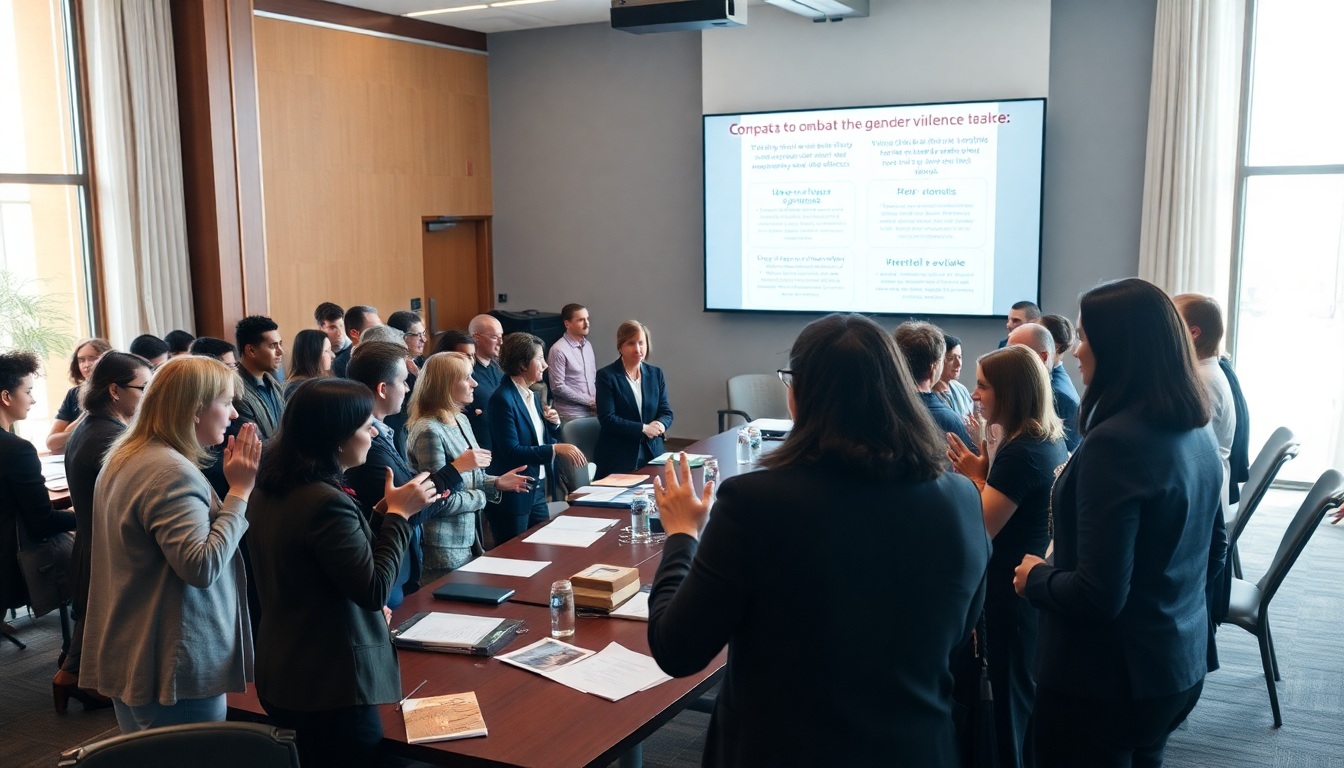Table of Contents
In a powerful gathering, various organizations dedicated to ending gender-based violence came together with Canada’s Minister for Women and Gender Equality. This meeting shines a light on the urgent need to tackle what many see as an epidemic of violence against women and girls in Canada. Representatives from rural and remote regions of British Columbia, sexual assault centers, inner-city services, and advocates for girls’ rights all joined forces, united in their mission to raise awareness and demand action. But what can we do to change the narrative?
The Current Landscape of Gender-Based Violence in Canada
This conversation couldn’t come at a more critical time. Canada is facing alarming rates of intimate partner violence. Just look at the tragic murder of Bailey McCourt in Kelowna, allegedly at the hands of her ex-husband. Such heartbreaking incidents have spurred advocates to push for a distinct criminal offense for femicide—defined as the intentional killing of women or girls motivated by gender-related factors. This movement highlights a growing recognition that violence against women isn’t just a societal issue; it’s a call for targeted legislative change.
During the meeting, Angela Marie MacDougall, the executive director of Battered Women’s Support Services, voiced her deep concerns about the current trajectory of gender equality in Canada. She stressed the importance of ensuring that decision-makers truly grasp the stakes involved and the urgent need for effective policy responses. Can we afford to ignore the voices of those most affected? Many advocates share a mix of anxiety and determination, urging the government to prioritize gender-based violence on its agenda.
Government Commitment and Future Actions
Minister Rechie Valdez reaffirmed the government’s commitment to addressing violence against women, sharing her personal connection to the issue. Valdez revealed that her own family has been touched by loss due to gender-based violence, and this experience fuels her drive for change. She outlined the government’s ongoing national action plan to combat this issue, a ten-year initiative that has already seen nearly half a billion dollars invested over the past three years. However, advocates like MacDougall caution that sustaining this momentum will require increased funding—a concern that wasn’t fully addressed during the meeting.
Moreover, Sharon Gregson, a spokesperson for the $10-a-Day Childcare Campaign, pointed out that childcare issues are closely tied to gender justice and economic health. The advocates raised alarms about the need for ongoing support for childcare services, which they believe are essential for empowering women and fostering economic stability in the province. As discussions progress, stakeholders are closely watching the government’s budget commitments, hopeful that they will allocate necessary resources to support these vital services. Will the government step up to the plate?
Looking Ahead: Challenges and Opportunities
As the dialogue around gender-based violence evolves, advocates emphasize the need for core federal funding to sustain anti-violence services. They also expressed concerns about the potential impacts of resource extraction projects on communities, especially regarding women and gender-diverse individuals. The intersection of economic development and social justice remains a critical focus, as advocates strive to ensure that all communities are considered in policy planning and execution.
In conclusion, while the meeting with Minister Valdez marks a step forward in addressing gender-based violence in Canada, it also highlights the challenges that lie ahead. The commitment to a national action plan is commendable, but advocates are clear: ongoing vigilance and advocacy are essential to hold the government accountable and ensure that funding levels meet the growing needs of communities. The path forward requires collaboration, sustained effort, and a relentless focus on creating a safe and equitable society for everyone. Are we ready to take on this challenge together?


